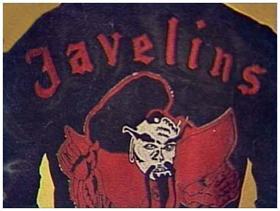Chicago to New York Gangs and Clubs
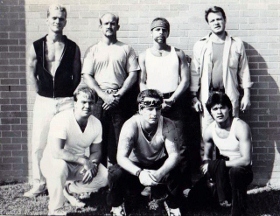
Gang Slang
In large cities like Chicago and New York, A rumble is more than a low, heavy, rolling sound. A rumble, in the argot of teen-age street gangs, is a mass fight between rival groups. Teen-agers have always had their special language, but the jargon of the teen-age gang is something recent. In a sense it is eclectic, drawing on the language Of “hip” jazzmen, the underworld, and the military, But much of it consists of common terms given surprising Twists.
New York and Chicago Gang Slang
- Bopping- Fighting against a rival gang. Also as a body language which said a lot about the nature of the gang. When a gang decided to become a fighting, or "bopping" gang, its members immediately took on a different way of walking. A rhythmic gait characterized by the forward movement of the head with each step.
- Humbug – (Chicago) same as bopping.
- Jitterbug - Used like Humbug in Queens New york
- Burn – To bop, especially with weapons.
- Bust – To beat up. Also to disperse, as, “Man, the cops busted us and we wasn’t Doing nothing.”
- Call it on – To arrange a rumble.
- Clique – The gang.
- Cool it – To call off the rumble.
- Crew – Same as clique.
- Debs – short for debutantes. The girl friends of gang members. Sometimes the debs are loosely organized as an auxiliary of the gang.
- Down – Bad; tough. A gang member might say admiringly of his gang. “Man, we’re way down.”
- Down kiddie – A tough guy. He doesn’t punk out; he’s not chicken.
- Fair one – A fist fight, without weapons, between one or more representatives of two rival gangs. A fair one may occur when individuals members of rival gangs have personal grudges to settle, or when it has been decided to settle gang grievances without resorting to a rumble. In many cases what starts as a fair one, with the rest of the gang watching, ends in a rumble anyway.
- Go down – Same as a burn.
- Job man – the social worker, usually from the Youth Board, who tries to help gang members. Gangs often like tp have a job man assigned to them because it shows how tough they are.
- Jump – A dance or social event. Also, as a verb to attack rival gang members without warning.
- Pad down – To search or “frisk.” The cops padded us down and then busted us.”
- Piece – A firearm; usually a pistol, but also a rifle, perhaps cut down. “The heat’s on, man; I got to hide my piece.”
- Pot – Marijuana.
- Pull a jap – Make a sneak attack. From the attack on Pearl Harbor, when the Japanese “burned our guys.”
- Punk out – To behave in a cowardly manner; to run away, as from a fight or a threat.
- Rank – To taunt rivals with threatening or insulting looks or words; a form of challenge. Probably from the Army expression “to pull rank,” meaning to make use of one’s higher rank to bulley a subordinate.
- Rep – Reputation, prestige, status. One of the major reasons for joining a gang.
- Schemer – The shrewd member of the gang. A schemer might take over the gang leadership by subtly playing one faction against another. Also, the one that thinks up things to do.
- Session – Same as a jump or dance.
- Mix - Same as a rumble. The Jets and Sharks are Going to mix.
- Shank – to stab, particularly in the leg.
- Sound – Same as to rank.
- Tight – Close, in the sense of close friends.
- Turf – The neighborhood territory ruled by a gang.
- Waste – To defeat thoroughly; to annihilate.
- Chickie – The Cops. “Hey Chickie,” warning the Cops are coming.
- Hack - Cop; Man on the walk.
- Rolled - We rolled that Flake.
- Throwdown - Fight; That cat can Throwdown.
- Jive stud - Liar
- Repping your end - Giving out your postal code.
- Sound your clique - Shouted like a military order. Response would name of your gang, or, "I am Cool," meaning: you are a civilian.
- Cheese it - Lets cut the rug! Lets book outta of here. Used in Chicago.
- Gum Shoe - is the Copper. The Fuzz. Police. Mr. Police Officer. Used in Chicago.
- Duper - a.k.a. Doopers (Dear Old Oak Park): The best way to explain who the groups were: on Happy Days - Richie Cunningham was a Dooper, Fronzy was a Greaser, and Potsy was a nerd.
Harlem Gang Slang
From the movie The Young Savages: "I heard the Horsemen were bustin out, bobbin the gang on the next block so I had myself a look. It was a rumble for real with zip guns jackhammers the works."
Brooklyn Gang Slang
From the movie The Warriors: "We're going to have to bop our way back!" "What are we waiting for?" "The train would help. Unless you want to get japped on an open platform!"
Fifties Boppin Slang
It all started in the fifties: gang lingo, gang jargon, greaser slang. The words from the list were used from the 1950’s through today. Some of the words have been modified to fit the times, but their roots are the 1950’s.
Rising Up Angry
Throughout the 1950s until the early 1980s, Chicago's youth were divided into two cultures: the Greasers and the Hippies. Greasers tried to hold on, or imitate the Greasers of the 1950s. The Hippies imitated the Hippies, or Freaks that most people remember from the 1970s before the disco era. Hippies were known for their parties; Greasers were known for fixing up old fast cars, drag racing, motorcycles, and joining gangs, though being in a gang wasn't a greaser requirement.
Greasers Verses Hippie
They say that the Greaser era died when Doo Wop and President John F. Kennedy was killed in 1963, but there was an underground Greaser culture that existed in big cities around the country like Chicago, Brooklyn, The Bronx, Queens, Staten Island, Philadelphia, and the New Jersey Shore (Jersey City, Newark, and Perth Amboy). It wasn't uncommon to find Chicago Greaser gang members in the mid 1970s Doo Woping on their corners. Some of the Greasers evolved into the motorcycle clubs of the 60s and the Punk scene in the 1980s. The Greaser era never really died out. Today, the garage group Rockabilly crews on the East Coast have brought the Greaser style back to the shore, though Greasers have alway existed in New Jersey.
In Susan E. Hinton's novel/Movie "The Outsiders", she covered the period of the late sixties where there was a rivalry between the Greasers and Soc's in Tulsa Oklahoma. It has been reported that there were many Greasers still around at Tulsa's Will Rogers High School into the early 1970s. The movie did a great job of showing the two different groups fighting for position in society at a time when most of the country still had a large population of greasers still around. Susan E. Hinton's followup novel/movie "Rumble Fish", did a fantastic job of showing the transition period where the Greasers lifestyle was being replaced with the drug culture or the hippie/freak culture. Rumble Fish showed how the Greaser, or Greaser gang member, lost all loyalty for his friends and culture replacing it with drugs. The remaining Greasers in this period, were considered out of style or a throw back to the fifties. To be accurate, the Greaser Culture disappeared at different times in different parts of the country, and in some areas never disappeared at all.
Sixties Greaser Clothing and Colors
During the 1960s a lot of greasers from the Southside would go to Maxwell Street on the weekends and find good bargains on leather& suede jackets, Italian knit shirts, and baggie work pants. Back then Maxwell Street was called Jew Town and the rumor was if you were the first customer of the day in their store you could get just about anything for a great price because as the rumor went it was bad luck for them if they didn’t make a sale to their first customer of the day. In Jew Town there were also good prices on shoes the most popular were Stacy Adams & wing tips. After awhile the hottest item became the baggie work pants. On the Southside, the style started in Bridgeport with the Italian greasers. You would see them wearing green work pants cuffed up and quilted work jackets and combat boots. The style caught on in other neighborhoods and soon would see white greasers everywhere wearing baggies. In the early 60s, on the Southside none of the white gangs wore club sweaters. You would see a few gangs wearing jackets with their gang names on the back. In the latter part of the 60s, some white gangs started wearing club sweaters such as Centurians, LAs, Aristocrats, Cornell Dukes, and the Brothers of Brighton.
Sixties Southside Chicago Greaser stated
Back in the sixties we wore gray leather jackets and baggie grays and combat boots. The blacks at Tilden High School use to call us "Grayboys" thinking we wouldnt like.
Chicago Gang Study in progress
See link: Chicago Gang Study
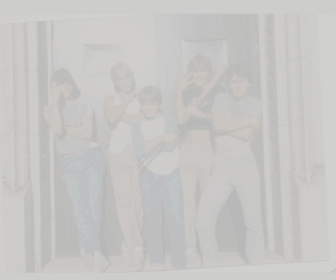
Stone Greasers
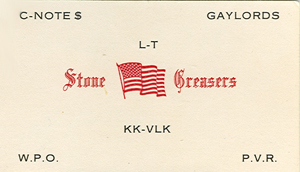
Tulsa Greasers
Two Will Roger's Greasers Speakout
Galvin, a Tulsa greaser had this to say: I was/ am/will always be a greaser. My sister and Susan were friends, she and Ms. Parker who is still a teacher at Rogers all hung out at the roller skate ring, the Rose Bowl, and the Admiral twin drive in together. We were the guys at Will Rogers who had cars, smoked, and in my case had a leather jacket. Started back in 1947, and lasted until 1980. At that time the schools ended driving to school, smoking required you to be over 18, and with busing, the rich kids quit public schools and moved to private, making all the public schools here equally poor, wiped out the social. Leather jackets, long hair, and rebellion were overtaken by gangs of mostly African Americans, and the white kids seemed to not hang out in groups anymore. Now it's CRIPS, and bloods, Preppies, and Goths, Jocs, and Dweebs. None of which would dare to cross into another group.
..Gone are the days of loyalty
Gone are the days where you might not know a kid, but if he was like you both of you had the others back. Pony-boy, soda-pop, and the others have all grown-up, and moved on. Tex married Cherry his sweetheart from Edison (the rich kid school), and went on to be of all things a cop. Pony-boy died in 1968 in Vietnam, and soda-pop has his own Cycle shop just down the street from Rogers. They are grandpas, and grandmas now. Susan still works with kids who want to be writers, and is still seen hanging out by the park, but the fountain is gone now, like everthing change is forever, and the moments in time we share, are best left to the writers to document.
Patrica, a Will Rogers greaser had this to say: If you lived north of Admiral you were a "greaser". South of admiral you were a soc! I graduated in 1972. I lived south of Pine Street and we were definitely a mixed crowd. The people living down the street from me were "Soc's) at Rogers i.e. cheerleaders, etc. Myself I was a Roper Doper in the junior and senior year. We used to go to a drive in at 18 and Sheridan to open up a big can of whoop azz on the Soc's at Hale....We partied at the boat house at Mohawk park and got drunk every Friday night at the "library" restaurant on 11th street. I have not been back to Tulsa for years now so I am sure things have changed but I am still a "greaser" at heart. They can take those snotty "antisocial" (Soc's) and keep them on the south side. But Rogers had PLENTY of "Soc's" believe me. My parents live near the Dairy Queen and middle school where the Outsiders was filmed in Owasso.
Bill 1970 Graduate: I graduated in 1970 from Rogers. There were Greasers, Socises, Hippies and of course the Jocks! The smoke hole was the place to go, if you were a sophmore they would make you climb the pole and I believe it was greased or you would get thrown out of the window in Art Class (faced East) into a sticker bush! They had just started segretion of schools. I went to school with Susan Hintons sister Beverly. Went to Burbank and Bell Junior High.Those were great years. The smoke for Greasers at Bell Junior High was at Sheridan Village underneath the ramp going to the second level.
Stone Greaser Defined
A Greaser from the 1960s/70s had this to say about "Stone Grease":
"The term 'Stone Greaser' didn't originate with any one club, or even in a club at all, and was never used to identify someone exclusively as a club member.
Seventies and Eighties Greasers
Back in the sixties and seventies, 'stone' was a common ghettoism meaning 'extremely', or 'absolutely', sonmthin on those lines. 'Stone to the bone' was the common full version of the saying.
To say 'StoneGreaser', or the more common 'Stone Grease', simply meant that you were a hardcore Greaser."
Stone Greaser Grapevine
In the 1970s, Chicago had an organization/underground newspaper called "Rising Up Angry" which would feature Gangs and Greasers in their "Stone Greaser Grapevine" section.
The "Stone Greaser Grapevine" would feature a greaser gang in every issue. The "Stone Greaser Grapevine" was aimed at the Greaser subculture and would have a cartoon in the back usually involving a conflict between the Police and some Greasers. The organization "Rising Up Angry" tried to help out the gangs and form peace treaties between warring gangs.
In the cities where the Greaser subculture survived past the 1970s were in places like Chicago, New York, and Tulsa where you had poor to working-class White neighborhoods which did not experience "ethnic cleansing" until into the eighties and nineties. Cities like Detroit lost their Greaser neighborhoods in the late 1960s when the Whites moved out to the suburbs dispersing the Greaser subculture into communities where there wasn't a Greaser presence. "White Flight" did more damage to the Grease Culture than a change in style. Greasers still started car clubs, cruise nights, and sponsored fifties dances, but the big presence of Greasers in communities aimed at the Greaser lifestyle changed from leather to vinyl, and blended into the suburban countryside.
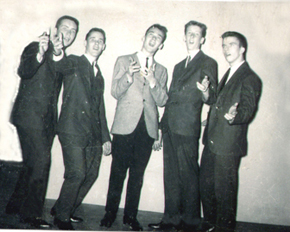
Woodside Chiefs: Expressions Doo Wop
Greaser Demographics
In the late 1940's through the early 1960's, the majority of Greaser gangs and clubs tended to be made up of Italian, Irish and youth of European decent. After the Immigration and Nationality Act amendments of 1965, immigration from European countries was greatly limited while immigration from third world countries increased. Demographics of inner city working class neighborhoods changed dramatically during the sixties, seventies, eighties and nineties. At the same time poverty stricken families from the coal mining region - appalachia - began to move north seeking a better life; therefore, in cities like New York, Chicago and Detroit Greaser gangs began to recruit more Appalachians as well as Polish, Russian and American Indian youth. In the late seventies through the nineties, it wasn't uncommon to find entire gangs or sections made up of American Indian and Appalachian greasers buried in pockets of the large cities.
Suburban Greasers
When I moved to the suburbs and showed up to high school in my baggies and suede’s... well lets put it this way. I stood out a bit.
We moved to the suburbs in 1974.My brother and I were Chicago Stone Greasers. We went to sign ourselves up for high school in Arlington Heights. We walked in through one of the smoking areas with greased hair wearing baggies, points and suede’s and leather jackets, through a crowd of jocks and hippies. We stood out a little. When were in the office filling out papers, outside the glass we saw a bunch of suburban greasers clowning around trying to get our attention. We met about a dozen or 2 guys who hung at some park. No one wore baggies; some had real leather jackets some plastic. What a bunch of clowns. Out of 2 dozen, maybe 3 or 4 were OK guys and one of them died young.
Vietnam Veteran Greasers
White Flight" or "White Fright"?
Detroit Greaser/Veteran said this: I was home on leave during the '67 riots. My family lived on Belvidere between Charlevoix and Vernor. The neighborhood went right down the tubes after that. I was overseas for most of '68, came home and started witnessing the flight. Tried to talk parents into moving then, but they and older Brother wouldn't budge. Came home in Aug '70 after 2nd tour things had only gotten worst. By the time they finally moved out in '72 they were the only white family in a 20 block radius. Call it what you like, but their flight was inevitiable. They rented the house out at first and then eventually sold it for next to nothing, just to be free of the taxes. This happened all over the city, people watched there neighborhoods deteriate, watched long time friends move away, and watched their property, their life's work, valued to almost nothing.
This is what us so called "baby killers" came home to. This plight and the spitters and jeering protesters at every airport. This is why the gang ranks expanded, and the streets got worse. These men, not boys, had no alternative and just didn't give a dam anymore. They struck back at society, the only only way they had, for being convicted of the crime of serving their country. Myself, I was able to avoid this fate and got the family to move to suburbs. Many other caucasian vets didn't. I can only imagine what it was like, the flustration and strife, for the minority vets stuck in the inner city with nowhere to go, but stay and fight a different war.
Royal Javelins New York
